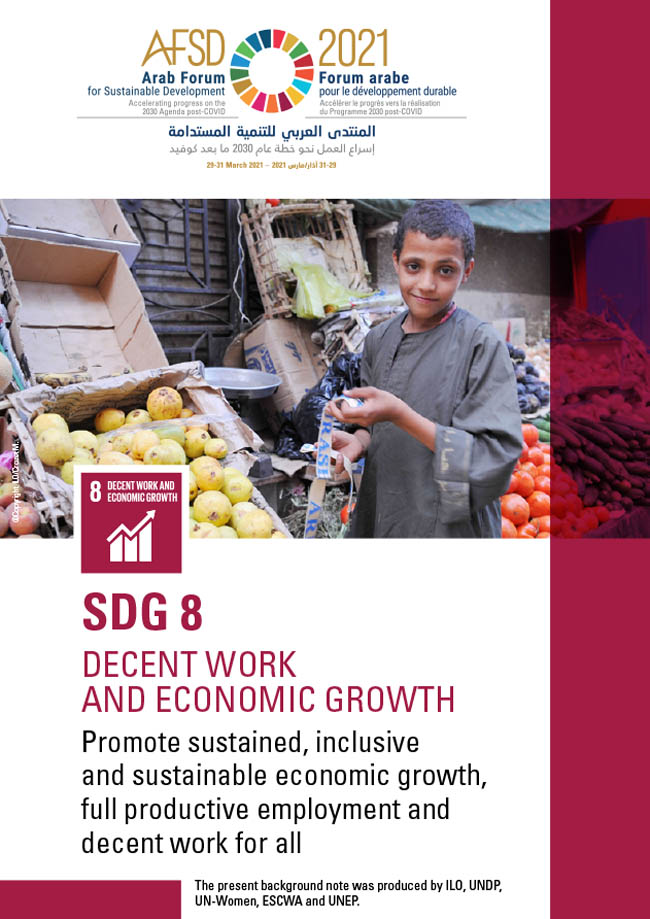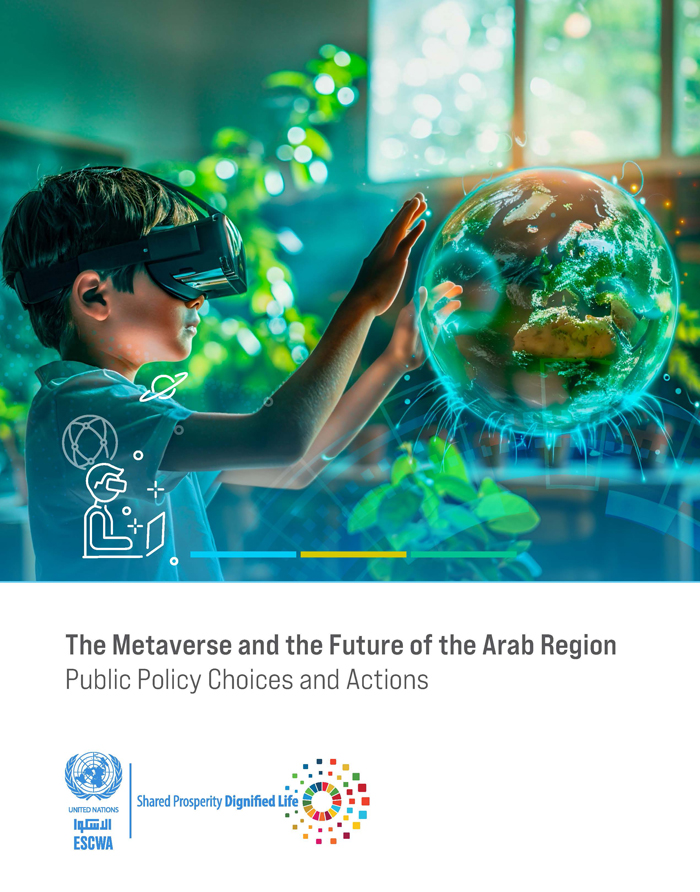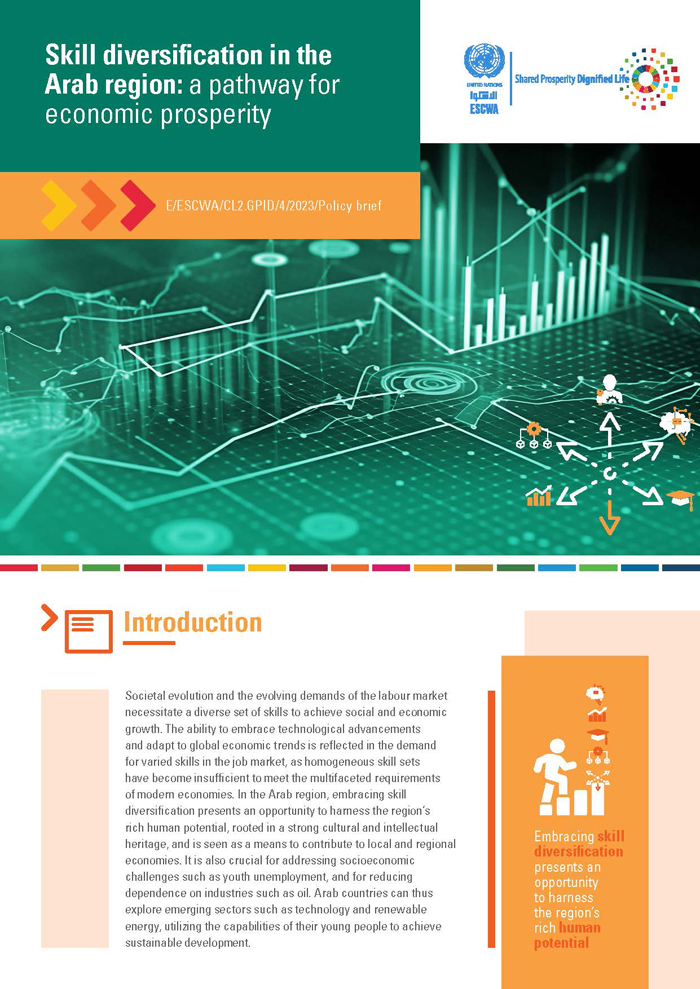
ESCWA Publication: E/ESCWA/RFSD/2021/INF.7
Country: Arab region
Publication Type: Information material
Cluster: 2030 Agenda and SDG Coordination
Focus Area: 2030 Agenda
Initiatives: Arab Forum for Sustainable Development
SDGs: Agenda 2030, Goal 8: Decent Work and Economic Growth
Keywords: Covid-19, Arab countries, Decent work, Economic growth, Social policy, Sustainable development
SDG 8 Decent Work and Economic Growth
March 2021
Economic growth in Arab countries has been uneven and largely failed to meet demand for productive employment and decent work. Overall, economic planning has been detached from social policies and governance structures that could increase equality and prosperity (SDGs 1, 4, 5, 10, 11 and 16). Overdependence on oil, the dominance of low-productivity sectors, and a problematic labour market also hamper efforts to move towards sustainable growth that safeguards the wellbeing of people and the planet (SDGs 7, 9, 12 and 13). These challenges have exacerbated the effects of the pandemic and limited the effectiveness of State action, especially in terms of ensuring functioning health and care systems (SDG 3).
A shift in economic thinking and planning towards economic structural transformation is necessary for the Arab region to move forward on SDG 8. The post-pandemic economic agenda must leverage the lessons learned to strengthen national social safety nets and employment policies, which are crucial to resilient economies that can withstand external shocks. The desired ‘return to normalcy’ should not reinstate – or even strengthen – unsustainable dynamics that give primacy to economic performance indicators over long- term structural reforms that improve job quality, and enhance people’s ability to fulfil their potential and improve their living standards. Such a transformation is vital for an effective and efficient post-pandemic recovery, but it cannot succeed without active pan-Arab and international collaboration to ensure that poorer countries are not left behind.
Related content
2030 Agenda
,
Economic growth in Arab countries has been uneven and largely failed to meet demand for productive employment and decent work. Overall, economic planning has been detached from social policies and governance structures that could increase equality and prosperity (SDGs 1, 4, 5, 10, 11 and 16). Overdependence on oil, the dominance of low-productivity sectors, and a problematic labour market also hamper efforts to move towards sustainable growth that safeguards the wellbeing of people and the planet (SDGs 7, 9, 12 and 13). These challenges have exacerbated the effects of the pandemic and limited the effectiveness of State action, especially in terms of ensuring functioning health and care systems (SDG 3).
A shift in economic thinking and planning towards economic structural transformation is necessary for the Arab region to move forward on SDG 8. The post-pandemic economic agenda must leverage the lessons learned to strengthen national social safety nets and employment policies, which are crucial to resilient economies that can withstand external shocks. The desired ‘return to normalcy’ should not reinstate – or even strengthen – unsustainable dynamics that give primacy to economic performance indicators over long- term structural reforms that improve job quality, and enhance people’s ability to fulfil their potential and improve their living standards. Such a transformation is vital for an effective and efficient post-pandemic recovery, but it cannot succeed without active pan-Arab and international collaboration to ensure that poorer countries are not left behind.


